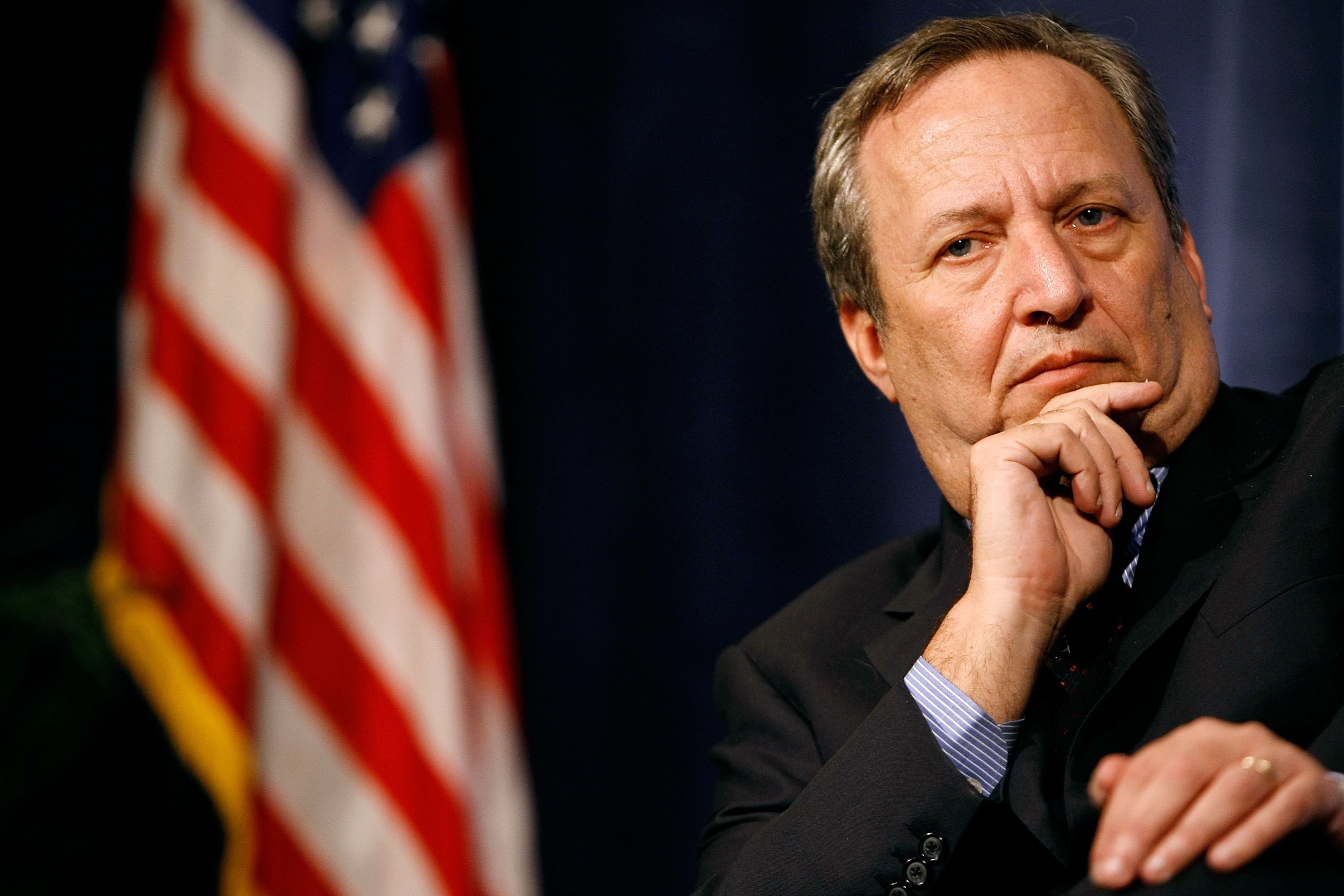Larry Summers has dismissed Joe Biden’s fiscal stimulus as the ‘least responsible’ economic policy for 40 years – but is he right?
The former US treasury secretary is a big beast in the American economic scene and we would be wise to listen to him, writes Hamish McRae


Larry Summers is famed for his intellectual arrogance, as he cheerfully acknowledges. But when he says that the Biden fiscal stimulus is the “least responsible” economic policy for 40 years, we should all sit up and listen.
He was himself US treasury secretary in the final 18 months of the Bill Clinton administration and chairman of the National Economic Council at the White House for Barack Obama. He was president of Harvard University, a role in which he was portrayed by Douglas Urbanski in The Social Network, giving short shrift to the Winklevoss twins when they sought his help against Mark Zuckerberg, who they claimed had stolen their idea for what became Facebook. Summers’s wry recollection of the actual interchange can be seen on YouTube.
So he is a big beast in the American economic scene and a big beast as an adviser to presidents.
Here are his key points from that Bloomberg TV interview on Friday. “I think this is the least responsible macroeconomic policy we’ve had in the last 40 years [...] I think, fundamentally, it’s driven by intransigence on the Democratic left and intransigence and completely unreasonable behaviour on the whole of the Republican Party.”
He thinks there is a one-third chance that inflation will accelerate and that will combine with slow growth, so-called “stagflation”. There was a one-third chance of no inflation because the Fed would hit the brakes by raising interest rates and that would push the economy towards recession. And there was a one-third chance of rapid growth without inflation.
That last outcome is what the Treasury and the Federal Reserve hope will happen, but if Summers is right, the odds are not too good. Of course we cannot know, but there are some things to watch for that will give us clues. So first, what to watch for, and then what might this mean for the rest of us.
The US economy is opening up now and looks like having a bumper year. The forecasters have been scrambling over each other to upgrade their forecasts, with Fitch now expecting 6.1 per cent growth and the OECD 6.5 per cent. Wall Street is even more bullish, with Goldman Sachs expecting 6.9 per cent and Morgan Stanley 7.3 per cent. These are stunning numbers – the sort of helter-skelter growth that China has generated in recent years, but the developed world has never experienced in peacetime.
Because no developed country has achieved this growth, we have no template against which to judge the longer-term impact of this. Which of the three outcomes suggested by Larry Summers is most likely? Common sense would say that we should expect a jump in inflation through the summer and the autumn, simply because there will be a surge in demand meeting limited supply. Goods prices may not go up by much; the price of a car is the price of a car. But services prices may well rise sharply. There are only a certain number of restaurant meals a place can serve, or hotel rooms in a favoured location. Expect the price of many services to respond to rising demand.
Read more:
If that is right, the question will be whether a summer jump in prices will become embedded in longer-term inflation. A lot depends on what happens to wages, and here we again don’t know. My guess is that the US labour market is so flexible that pay won’t soar away to any unsustainable extent. The boom in demand will result in more jobs, and that will underpin pay levels. But it will also suck more people into the labour market, particularly part-timers and early retirees who want to earn a bit more.
If that is wrong, and pay does start to climb sharply, then the US is into one or other of the first two scenarios sketched by Summers: stagflation or a clampdown by the Fed.
And the third outcome, the encouraging one? I think we will get that through the rest of this year. What worries me is what happens next year and beyond, when the stimulus fades and there is some sort of reckoning in the financial markets. Short term, US policy will be a triumph. The US economy will be back to its pre-pandemic peak later this year, maybe even in the summer. Long term, there will be a reckoning of some sort.
For the rest of the world, this year the US will be the locomotive, pulling us all along behind it. The UK will be in its usual position, growing slower than the US but faster than most of Europe – partly because of the successful vaccine rollout and partly because as a predominantly service-based economy we have more potential to spring back. But if and when inflation comes, that too will spread from the US to the rest of the world. We should listen carefully to Larry Summers – as indeed did the Winklevoss twins.
There is a footnote to that famous interchange at Harvard. In the film version Summers advised them to start another business instead. They took that advice, were early investors in bitcoin – and now are billionaires as a result.
Join our commenting forum
Join thought-provoking conversations, follow other Independent readers and see their replies
Comments